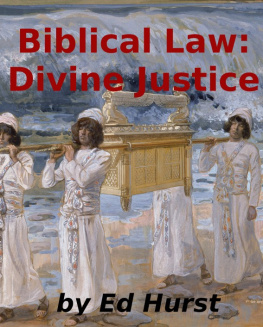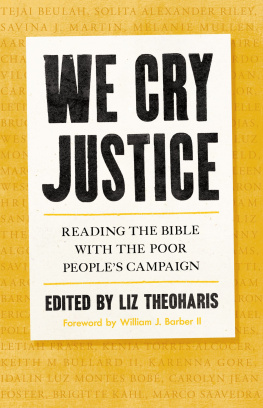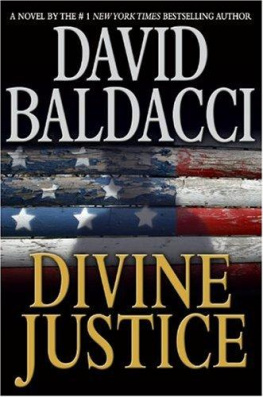Hurst - Biblical law divine justice
Here you can read online Hurst - Biblical law divine justice full text of the book (entire story) in english for free. Download pdf and epub, get meaning, cover and reviews about this ebook. genre: Religion. Description of the work, (preface) as well as reviews are available. Best literature library LitArk.com created for fans of good reading and offers a wide selection of genres:
Romance novel
Science fiction
Adventure
Detective
Science
History
Home and family
Prose
Art
Politics
Computer
Non-fiction
Religion
Business
Children
Humor
Choose a favorite category and find really read worthwhile books. Enjoy immersion in the world of imagination, feel the emotions of the characters or learn something new for yourself, make an fascinating discovery.
Biblical law divine justice: summary, description and annotation
We offer to read an annotation, description, summary or preface (depends on what the author of the book "Biblical law divine justice" wrote himself). If you haven't found the necessary information about the book — write in the comments, we will try to find it.
Hurst: author's other books
Who wrote Biblical law divine justice? Find out the surname, the name of the author of the book and a list of all author's works by series.
Biblical law divine justice — read online for free the complete book (whole text) full work
Below is the text of the book, divided by pages. System saving the place of the last page read, allows you to conveniently read the book "Biblical law divine justice" online for free, without having to search again every time where you left off. Put a bookmark, and you can go to the page where you finished reading at any time.
Font size:
Interval:
Bookmark:
- Biblical Law: Divine Justice
By Ed Hurst
Smashwords Edition
Copyright 2015 by Ed Hurst
Copyrightnotice: People of honorneed no copyright laws; they are only too happy to give creditwhere credit is due. Others will ignore copyright laws wheneverthey please. If you are of the latter, please note what Moses saidabout dishonorable behavior be sure your sin will find you out(Numbers 32:23)
Permission is granted to copy, reproduce anddistribute for non-commercial reasons, provided the book remains inits original form.
CoverArt: The Ark Passes Overthe Jordan by James Jacques Joseph Tissot in the Jewish Museum,New York City. Public domain image.
Chances are that divine justice is not at allwhat you might think it is.
Most likely you bear a wealth of assumptionsabout law, justice and reality itself that are foreign toScripture. Most people seem unable to recognize that the Bible isan Ancient Near Eastern book arising from an Ancient Near Easternreligion. That cultural and historical background is radicallydifferent from the Western world. Even people who know thisintellectually have a very difficult time fleshing out theimplications in their own mind. They are so overwhelmingly pickledin Western Civilization that they cannot even imagine that theirbasic assumptions are not generic, not at all the default in termsof human history.
More importantly, modern Western assumptionsabout divine justice are frankly hostile to what Scripture teaches.Because the vast majority of Western Christians inject theirWestern bias back into the Bible, it becomes quite a task toexplain justice from the biblical viewpoint. Rather than belabor somuch the failure of the Western assumptions (as covered in my book,A Course in Biblical Mysticism), we will lay a fresh reviewof the Ancient Hebrew approach. This is more or less what theChristian viewpoint ought to be.
God is Creator. He does not reside withinCreation, but His existence is rooted outside of it in a separatehigher dimension. Nonetheless, Creation is infused with His divinecharacter. In other words, our reality reflects His personality.This includes our human nature. By design we would naturally act onHis moral character while living within His Creation.
This means that we have within us a faculty forconnecting to that higher dimension of existence outside of thisuniverse. With such faculty in bloom, we would naturally perceivewhat constitutes a proper course of action that conforms to Hiswill and satisfies the demands of His glory. So far as we areconcerned, our purpose for existing in this realm of Creation is toglorify Him.
The path to His glory is claiming His promisesfor our lives. We gain the leverage for this by allowing thathigher faculty to reign in our souls. The Fall was, in essence, adecision to place human reason on the throne of our souls, afaculty much weaker and far less capable of discerning Godscharacter in the various opportunities confronting us in HisCreation. Indeed, human reason is wholly incapable of discerningHis character, and is thus unfit to rule human conduct. If all wehave is our intellect, we will only by accident ever do what isjust and right in the eyes of God. Indeed, we would remain in oursins for the very reason of silencing that higher divine facultyfor seeing His truth.
The intellect exists solely as the organizer andimplementer of truth leaking down into our consciousness from ahigher faculty. The Bible refers to this higher faculty as theheart. It is considered the seat of the will, the part of uscapable of interfacing with the Spirit Realm. The Bible describesit as a sensory organ all its own, a superior faculty that wasdesigned to rule over the intellect. The will is not a part of themind, but is an element in the conscious soul when we allow it torule. If it does not rule, it says mostly nothing at all. Thisleaves moral character to random guessing.
Western Civilization presumes there is nothinghigher than the intellect, enslaves the heart to the reason. It isprimarily man-centered, in contrast to the Hebrew God-centeredthinking. The entire range of Western assumption is that thisuniverse is all there can be, and that man can theoretically plumbthe depths of all possible knowledge. Thus, it hardly surprisesanyone that the entire range of Western thinking about law andjustice is man-centered. Insofar as there is anything higher thanman, it is nothing more than human-derived ideals, a disembodiedmyth of objective truth. In the Bible, all truth is a directreflection of Gods Person and character. It is wholly dependent onHim as a living Person in dynamic interaction with His Creation. Ifsomething does not reflect His divine nature, it cannot betruth.
Thus, we come to the realization that man doesnot have some noble task of reasoning his way to some objectivetruth about reality. Justice is not some human effort to abstract areasonable set of controls that would be realistic when testedanalytically by wise minds. Rather, divine justice is revealed.While an active ruling heart could reasonably hope to discern somemeasure of His divine truth in Creation, mere intellect wouldutterly miss the point for lack of capability. Intellectualdevelopment matters, but moral development of the heart is far moreimportant.
More importantly, Biblical logic finds ludicrousthe notion that what is generally reasonable is reasonable in allcontexts. That is, it is downright silly to assume that justice canbe objectified and formulated as a universal guide. Divine justiceis intensely personal in nature, and always contextual. Theunderlying fabric of truth cannot be stated objectively orformulated in convenient human language. It is living and activeand morphs with the context, so that it requires a developed heartthat senses the dynamic moral priority within the currentsituation. The Bible characterizes Creation itself as a livingbeing, and divine justice is simply the Person of God manifested inproper moral choices consistent with His personality.
Nobody imagines that any Western governmentwould pretend to understand such an approach, much less bend itselfto the demands of revelation. By the same token, no one who has aliving and active heart will ever imagine any Western democraticgovernment is in any way supported and actively protected by God onmoral grounds. All human political activity is passively permittedor actively guided by God, but not a single human authority undercurrent secular state assumptions pleases God. They ignore Him andHe uses them indirectly. They are all illegitimate under Hisrevelation.
You can blow it off as a figure of speech, butthe Bible takes this business of the sensory heart very seriously.It is impossible to understand, much less explain, much of whathappens in Scripture using a mere cerebral approach. Relying on theintellect is the very substance of the Fall. Redemption is movingour lives back as close to Eden as possible. The guide to whatspossible consists of the various Law Covenants God revealed in theBible.
They were not legislation in our modern Westernsense, but were expressions of something far higher than what canpossibly come across in any human tongue. They reflect thecharacter of God, and the language He used for His revelation wasnever meant to restrict, as if language was just a vehicle forcarrying truth. Rather, Hebrew language was used as sign postsindicating directions for further exploration.
If you committed yourself to carefully obeyingall the written prescriptions in the Law Covenants, you would nothave implemented divine justice. Gods Law is a proposal forpersonal commitment, not a proposition. The mythology ofpropositional truth is an entirely pagan notion dreamed up byGreek philosophers. It is utterly foreign to the ancient Hebrewpeople. Thus, Scripture records how such pedantic obedience neverdid much good, but that those who obeyed from the heart ofcommitment to Gods favor always managed to find His favor despitevery real human failures.
Next pageFont size:
Interval:
Bookmark:
Similar books «Biblical law divine justice»
Look at similar books to Biblical law divine justice. We have selected literature similar in name and meaning in the hope of providing readers with more options to find new, interesting, not yet read works.
Discussion, reviews of the book Biblical law divine justice and just readers' own opinions. Leave your comments, write what you think about the work, its meaning or the main characters. Specify what exactly you liked and what you didn't like, and why you think so.

















